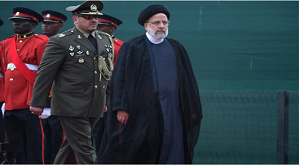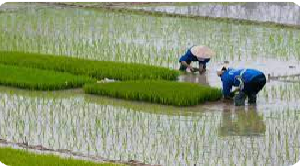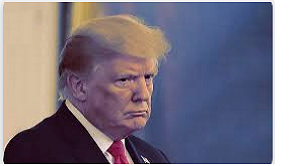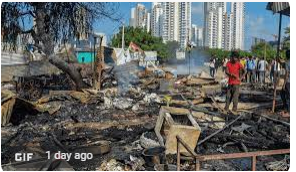In July 2023, Iranian President Ebrahim Raisi visited three African countries, Kenya, Uganda and Zimbabwe, to pursue three main objectives. First, to bypass US sanctions at a time of a stalemate in nuclear talks with Washington. Second, Raisi wished to expand Iranian ideological influence on the African continent and to gather political support for Iranian positions in international organizations. Lastly, these visits aimed to demonstrate that the conservative faction inside the Iranian establishment is focusing on fostering ties with non-aligned countries. This was, indeed, the first visit of an Iranian president to the African continent since Mahmoud Ahmadinejad’s visit 11 years ago. The African continent was less of a priority for Iranian foreign policy decision-makers during the 2013-2021 tenure of the moderate President Hassan Rouhani. Iran’s presence in Africa is an ideological, economic and security issue. Indeed, in the vision of the Iranian revolutionary political elite since 1979, relations with countries from the Global South are to be understood not only within the framework of the Khomeinist ideological tenet of anti-imperialism but also in the context of exporting the Iranian politico-religious model. This ambition requires interfering in the internal affairs of African states to carry out missionary activities, but also to build networks of non-state actors, such as religious actors, cultural associations, front-companies and drug networks. The aim behind this Iranian desire to assert power in Africa is to target the “enemies” of Iran, including regional rivals and global foes, especially the US. A new aspect apparent during Raisi’s recent visit to Africa was the search for new markets for Iranian military exports, such as drones and unsophisticated weapons systems. The official Iranian diplomatic stance sets very ambitious objectives for mutual Iranian-African cooperation. Nevertheless, difficulties are apparent in carrying out economic cooperation projects, and tensions often emerge in relation to Iran’s ideological and security activities on the African continent. For instance, Iran-Zimbabwe bilateral trade amounted to less than $5 million in 2021 and during the recent visit 12 memorandums of understanding were signed without any details regarding the future Iranian investments in the country. Zimbabwe’s President Emmerson Mnangagwa greeted Raisi after the Iranian president’s plane landed at Robert Mugabe International Airport in Harare and referred to him as “my brother.” Despite this apparent warmth, the economic rationality of the visit became a topic of debate inside Iran given the lack of economic complementary between the two countries. Overall, Iran’s Ministry of Foreign Affairs said that it expects trade with African countries to increase to more than $2 billion in 2023, up from an estimated figure of between $500 million and $1 billion in 2021 and 2022. The official Iranian objective of increasing trade with the continent to $5 billion is extremely insignificant and inferior to the UAE’s $50 billion and Turkiye’s $35 billion trade with Africa, which has a $600 billion global trade. Saudi Arabia’s financial investments in the continent are in line with its aim of becoming a global investment powerhouse, as outlined in its Vision 2030 policy framework. The Kingdom’s growing financial footprint in the continent, especially in West Africa, was expressed on Nov. 15, 2022, when Guinean President Mamady Doumbouya met the CEO of the Saudi Fund for Development Sultan Abdulrahman Al-Marshad. The healthy discussions led to a memorandum of understanding, with the Saudi fund agreeing to provide $8 million for a water project in the country and build 140 wells. On Oct. 17, 2022, the Kingdom signed several major deals with South Africa to develop the country’s emerging hydrogen industry, as well as other renewable sources. In total, the deals totalled around $15 billion in Saudi investments. Only a week before the October deals, the fund also agreed to provide $5 million for solar-powered street lights in the Central African Republic. What GCC investments and others indicate is that despite reconciliation with Iran, there is room for competition in other theaters, especially in resource-rich Africa, which has been a strategic sphere of contest among global powers for centuries. A present example is the scenario unfolding in Niger that has exposed France’s entrenched economic interests and dependence on the country, particularly for importing uranium. The difference today is that global powers are facing competition in Africa from rising powers with vast financial outlays such as the GCC, especially Saudi Arabia. The unlikelihood of a rapid settlement of the nuclear issue in 2023 because of the war in Ukraine and the complications facing the Biden administration in reviving the Joint Comprehensive Plan of Action will prevent a real deepening of Iranian economic cooperation with African countries. On the other hand, a security escalation between Tehran and Washington could lead the former to use its African networks of influence to challenge the US presence by targeting US diplomatic facilities on the continent. Moreover, with Iranian military support for Russia’s armed forces — delivery of drones and artillery ammunition, in particular — and its refusal to diplomatically condemn the Russian war in Ukraine, Tehran is also exposing itself to accelerated marginalization on the international scene. Finally, the weakening of Russia’s international economic influence, a consequence of its desire to enter confrontation with Washington, could certainly contribute to the emergence of a post-Western international order by pushing Moscow to seek alternatives to its dependence on the US financial system. This hope of the leaders of the Islamic Republic and some African leaders nevertheless risks coming up against economic limits that will hinder their ideological objective. The aim of maintaining a degree of balance between Russia and the West in the war in Ukraine through the emergence of a new form of neutrality or non-alignment risks not being a sufficient condition for Iranian-African rapprochement which will take place under the aegis of Moscow over the next few years. On the contrary, the proximity with Iran weakened by decades of economic sanctions is likely to burden the economic development of the African states that choose to bet on Iranian influence instead of the West.









